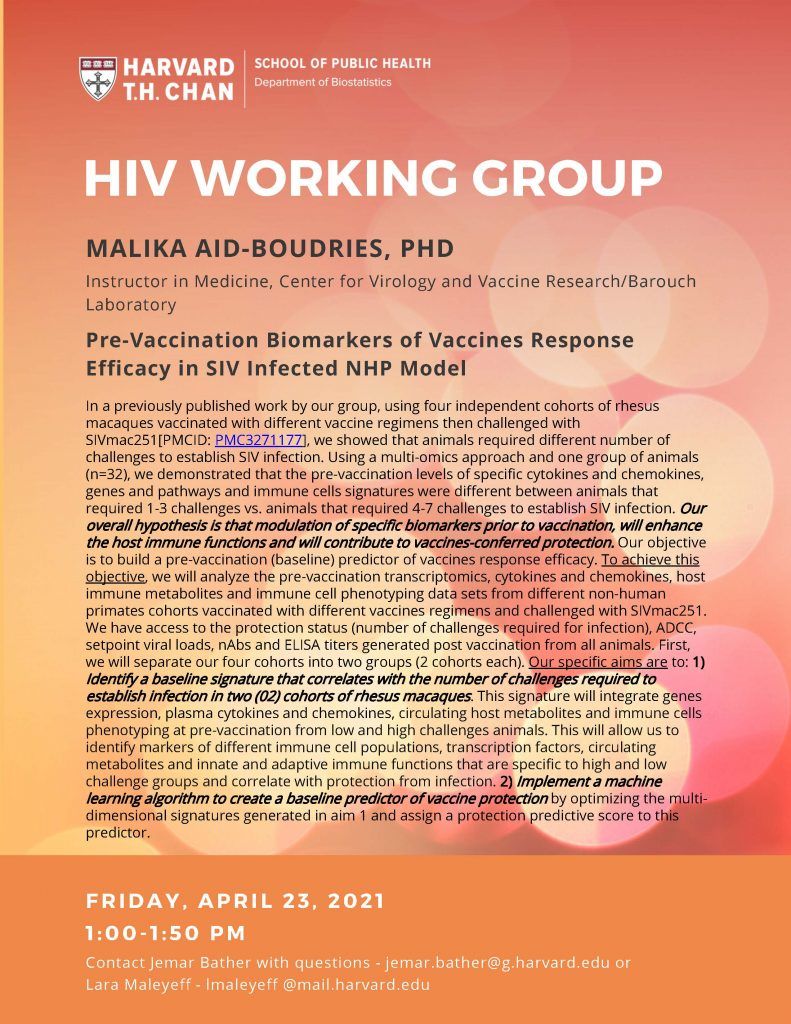
- This event has passed.
HIV Working Group
April 23, 2021 @ 1:00 pm - 2:00 pm

Malika Aid-Boudries, Ph.D.
Instructor in Medicine, Center for Virology and Vaccine Research/Barouch Laboratory
“Pre-vaccination Biomarkers of Vaccines Response Efficacy in SIV Infected NHP Model”
ABSTRACT: In a previously published work by our group, using four independent cohorts of rhesus macaques vaccinated with different vaccine regimens then challenged with SIVmac251[PMCID: PMC3271177], we showed that animals required different number of challenges to establish SIV infection. Using a multi-omics approach and one group of animals (n=32), we demonstrated that the pre-vaccination levels of specific cytokines and chemokines, genes and pathways and immune cells signatures were different between animals that required 1-3 challenges vs. animals that required 4-7 challenges to establish SIV infection. Our overall hypothesis is that modulation of specific biomarkers prior to vaccination, will enhance the host immune functions and will contribute to vaccines-conferred protection. Our objective is to build a pre-vaccination (baseline) predictor of vaccines response efficacy. To achieve this objective, we will analyze the pre-vaccination transcriptomics, cytokines and chemokines, host immune metabolites and immune cell phenotyping data sets from different non-human primates cohorts vaccinated with different vaccines regimens and challenged with SIVmac251. We have access to the protection status (number of challenges required for infection), ADCC, setpoint viral loads, nAbs and ELISA titers generated post vaccination from all animals. First, we will separate our four cohorts into two groups (2 cohorts each). Our specific aims are to: 1) Identify a baseline signature that correlates with the number of challenges required to establish infection in two (02) cohorts of rhesus macaques. This signature will integrate genes expression, plasma cytokines and chemokines, circulating host metabolites and immune cells phenotyping at pre-vaccination from low and high challenges animals. This will allow us to identify markers of different immune cell populations, transcription factors, circulating metabolites and innate and adaptive immune functions that are specific to high and low challenge groups and correlate with protection from infection. 2) Implement a machine learning algorithm to create a baseline predictor of vaccine protection by optimizing the multi-dimensional signatures generated in aim 1 and assign a protection predictive score to this predictor.



